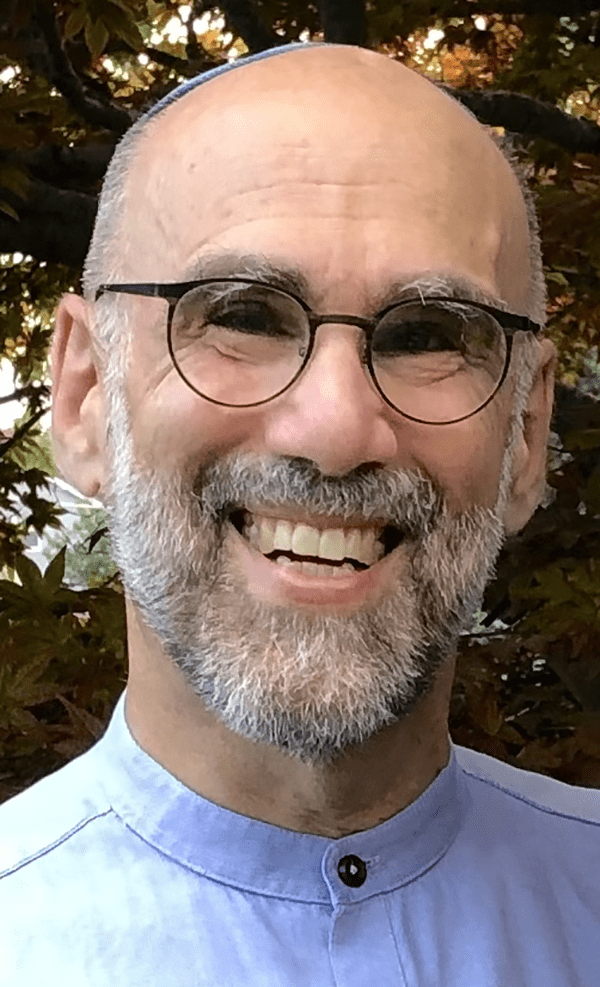Parshat Lech-Lecha 5785
We make assumptions about others based on what we see: what they wear, what they drive, their work, past-times… And we project upon the other who passes our superficial entrance exam what we want them to be — i.e., more like us!
Breath (Yizkor KN5785)
My recent posts...
Can You Hear Me (KN 5785)
My recent posts...
Yom Kippur Singing
My recent posts...Over the decades, I have composed melodies for some of the texts we use in our prayer services. (I've written English interpretations of the texts for a few of them.) Some of them are posted here so we can sing them together at Shirat Hayam and, even...
Sukka: A Personal History
My parents’ sukka was nearly indestructible: Plywood panels, 4’x8’, on 2×4 frames, making an eight-by-twelve-foot sukka. The panels, constructed by my father, bolted together. The middle panel of the long wall had a small window, complete with a rod and curtain.
A window from our dining room opened into the sukka, so there was a handy pass-through. An outdoor faucet was within the sukkah, so we had running water. I don’t remember where the outlet was, but somehow an electric heater was working under the table on really cold nights. (In a photo of our firstborn’s first time in that sukka, she is in a snowsuit!)
When Ellie and I inherited it, we enlarged it with a few new panels; our girls got some practice with an electric drill, wrenches, hammers and nails. To store it, we built a platform in the garage that cleared the car’s hood by several inches.
That sukkah could seat about 20, and we filled it with a mix of people from shul, the kids’ schools, the neighborhood. We noticed that with at least six kids ages 12 and under, they played well together, sometimes en masse, more often in smaller fluid groups. And they generally left us parents long enough to have adult conversations. It was like magic: Ages and genders didn’t seem to matter, as long as there was that six-kid minimum critical mass.
We hung some of my art on the sukka walls along with the kids’ drawings/decorations. Then we started painting on the panels themselves, which reminded me — in spirit, at least, if not in style and detail — of the painted wooden synagogues of Eastern Europe.
As Ellie and I prepared to move to the shore, we considered that we would be renting, with storage space at a premium. So we passed the sukka on to a shul family with young kids. Ten Sukkot later, we hope it is still making memories.
For Ventnor, we bought a sukka kit (metal pipe frame, fabric walls) that we erected on the driveway of our apartment. Oh, the mighty shore winds! One year, the sukka was blown perpendicular to the ground, wedged under the second-floor eaves.
The sukka is faring better on the deck of our house. 200 pounds of water in buckets tied to the frame helped keep the sukka on the deck … until they didn’t. After the sukka was twice blown off the deck — once over our neighbor’s fence! — we replaced the dense fabric walls with wood lattice which has less wind resistance. So far, so good!
There is no bracha / blessing for erecting a sukka, but there is a bracha for sitting, or “dwelling,” in one. Torah commands that we live in a sukka for a week; we are not commanded to build it.
Make the most of the sukka experience by sitting, eating, sleeping (for the adventurous; air mattresses are okay!) in one. If you don’t have your own, enjoy your food in our synagogue sukka, or, if you prefer, in the sukka of someone you know. Ours is always open!
Shabbat shalom v’chag sameiach ! שַׁבַּת שָׁלוֹם וְחַג שָׂמֵחַ


